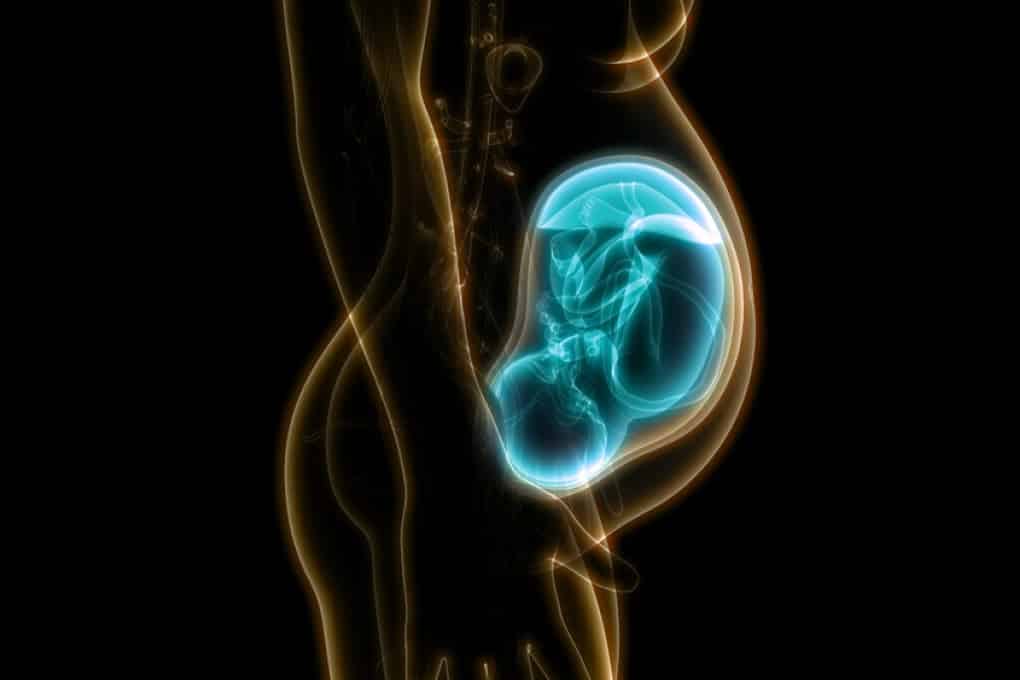Scientists have identified a gene that, if missing or damaged, can cause obesity, behavioral problems and, in mothers, postnatal depression. The discovery, reported in Cell could have broader implications for the treatment of postnatal depression, with a mouse study suggesting that theoxytocin It may relieve symptoms.
The therapeutic benefits of oxytocin
Obesity and postnatal depression are significant global health problems. Postnatal depression affects more than one in 10 women within a year of giving birth and is linked to an increased risk of suicide, which is responsible for one in five maternal deaths in high-income countries. Meanwhile, obesity has more than doubled among adults since 1990 and quadrupled among adolescents, according to the World Health Organization.
While studying two boys from different families with severe obesity, anxiety, autism, and behavioral problems triggered by sounds or smells, a team led by scientists from the University of Cambridge, UK, and Baylor College of Medicine in Houston, US, discovered that the boys were missing a single gene, known as TRPC5, which is located on the X chromosome.
Further investigation revealed that both boys had inherited the genetic deletion from their mothers, who were missing the gene on one of their X chromosomes. The mothers were also obese, but had also suffered from postnatal depression.
To test whether the TRPC5 gene was causing the problems in the boys and their mothers, the researchers turned to animal models, genetically modifying mice with a defective version of the gene (Trpc5 in mice).

Male mice with this defective gene showed the same problems as males, including weight gain, anxiety, aversion to social interactions, and aggressive behavior. Female mice showed the same behaviors, but when they became mothers, they also showed depressive behavior and impaired maternal care. Interestingly, male mice and female mice who were not mothers but carried the mutation did not show depression-like behavior.
Dr. Yong Xu, associate director for basic sciences at the USDA/ARS Children’s Nutrition Research Center at Baylor College of Medicine, said, “What we saw in these mice was really remarkable. They showed behaviors that were very similar to those seen in people who lack the TRPC5 gene, which in mothers included signs of depression and difficulty caring for their babies. This shows us that this gene is causing these behaviors.”
TRPC5 is part of a family of genes involved in the detection of sensory signals, such as heat, taste, and touch. This particular gene acts on a pathway in the hypothalamus region of the brain, where it is known to control appetite.
Examining this brain region in more detail, the researchers found that TRPC5 acts on oxytocin neurons, nerve cells that produce the hormone oxytocin, often nicknamed the “love hormone” because it is released in response to displays of affection, emotion, and bonding.
Knocking out the gene from these oxytocin neurons caused otherwise healthy mice to show similar signs of anxiety, overeating, and impaired sociability, and in the case of mothers, postnatal depression. Restoring the gene to these neurons reduced body weight and symptoms of postnatal anxiety and depression.

In addition to acting on oxytocin neurons, the team showed that TRPC5 also acts on so-called POMC neurons, which have long been known to play an important role in weight regulation. Children in whom the POMC gene does not function properly often have an insatiable appetite and gain weight from an early age.
Professor Sadaf Farooqi from the University of Cambridge’s Institute of Metabolic Science said: “There is a reason why people deficient in TRPC5 develop all these conditions.
We have long known that the hypothalamus plays a key role in regulating “instinctive behaviors,” which allow humans and animals to survive, such as foraging for food, social interaction, the fight-or-flight response, and caring for their babies. Our work shows that TRPC5 acts on oxytocin neurons in the hypothalamus to play a critical role in regulating our instincts.”
Although deletions of the TRPC5 gene are rare, an analysis of DNA samples from around 500,000 individuals at the UK Biobank revealed that 369 people, around three-quarters of whom were women, carried variants of the gene and had a higher-than-average body mass index.
The researchers say their findings suggest that restoring oxytocin could help treat people with missing or defective TRPC5 genes and potentially mothers suffering from postnatal depression.

Professor Farooqi said: “Although some genetic conditions like TRPC5 deficiency are very rare, they teach us important lessons about how the body works. In this case, we have made a breakthrough in understanding postnatal depression, a serious health problem about which very little is known despite many decades of research. And importantly, it could point to oxytocin as a possible treatment for some mothers with the condition.”
There is already evidence in animals that the oxytocin system is involved in both depression and maternal care, and there have been small studies using oxytocin as a treatment. The team says their work provides direct evidence of oxytocin’s role, which will be crucial in supporting larger, multicenter studies.
Professor Farooqi added: “This research reminds us that many of the behaviours we take for granted are completely under our control have a strong biological basis, whether it’s our eating behaviour, anxiety or postnatal depression. We need to be more understanding and compassionate towards people who suffer from these conditions.”
Key hormone influences social behavior from areas outside the brain
The role of oxytocin in regulating and influencing social behavior is well known. Numerous ongoing clinical studies are focusing on levels of the hormone in the brain, but now a research team from Florida State University has found evidence that oxytocin receptors outside the brain may play an important role in shaping social behavior.
Elizabeth Hammock, associate professor of psychology and neuroscience, and her team, including graduate student Manal Tabbaa and undergraduate Ashley Moses, looked at the behavior of mice that lack oxytocin receptors in cells outside the brain. They found that receptors outside the brain in other areas of the body may be key to understanding how oxytocin shapes interactions between animals.
“This study shows that there is a population of cells outside the brain that have oxytocin receptors, and when that population of cells is depleted of those receptors, it impacts social behavior,” Hammock said. “A key takeaway is that to understand the role of oxytocin in social behavior, we have to look at the whole organism. We can’t just assume that the brain is doing all the work.”
Hammock said his team removed the gene that codes for the oxytocin receptor from some cells during prenatal development.

“We left the developing brain alone and instead specifically removed oxytocin receptors from a population of cells outside the brain,” he said. “We let the mice grow to adulthood and then tested these genetically modified mice and ‘typical’ mice on some standard tests of social behavior that are routinely used for laboratory mice.”
Hammock said the genetically modified mice in the study showed reduced social interest and males were quicker to display aggression than non-genetically modified mice.
Hammock noted that there are already several drugs that aim to regulate oxytocin levels in the brain, with additional clinical trials underway that pursue the same goal. The findings of this study suggest that scientists may need to broaden their scope.
“There are several clinical trials that are trying to use oxytocin to modulate human behavior, and there are research efforts to improve drug delivery to get oxytocin to the brain,” he said. “Our data suggest that we may not need to target the brain if it can regulate behavior through multiple drug-accessible sites outside the brain.”
She added: “We still need to determine whether the lack of oxytocin receptors in those specific cells outside the brain alters the development of the mice, causing changes in their behavior as adults. If so, it would make it more difficult to treat them with drugs in adulthood after they have developed. Also, our study is in mice, not humans, which is important to remember. We still have a lot of work to do.”
Hammock concluded: “We focus a lot on the brain, and rightly so, but the brain is an integral part of a larger system.”
#Oxytocin #Treatment #Obesity #Postnatal #Depression
